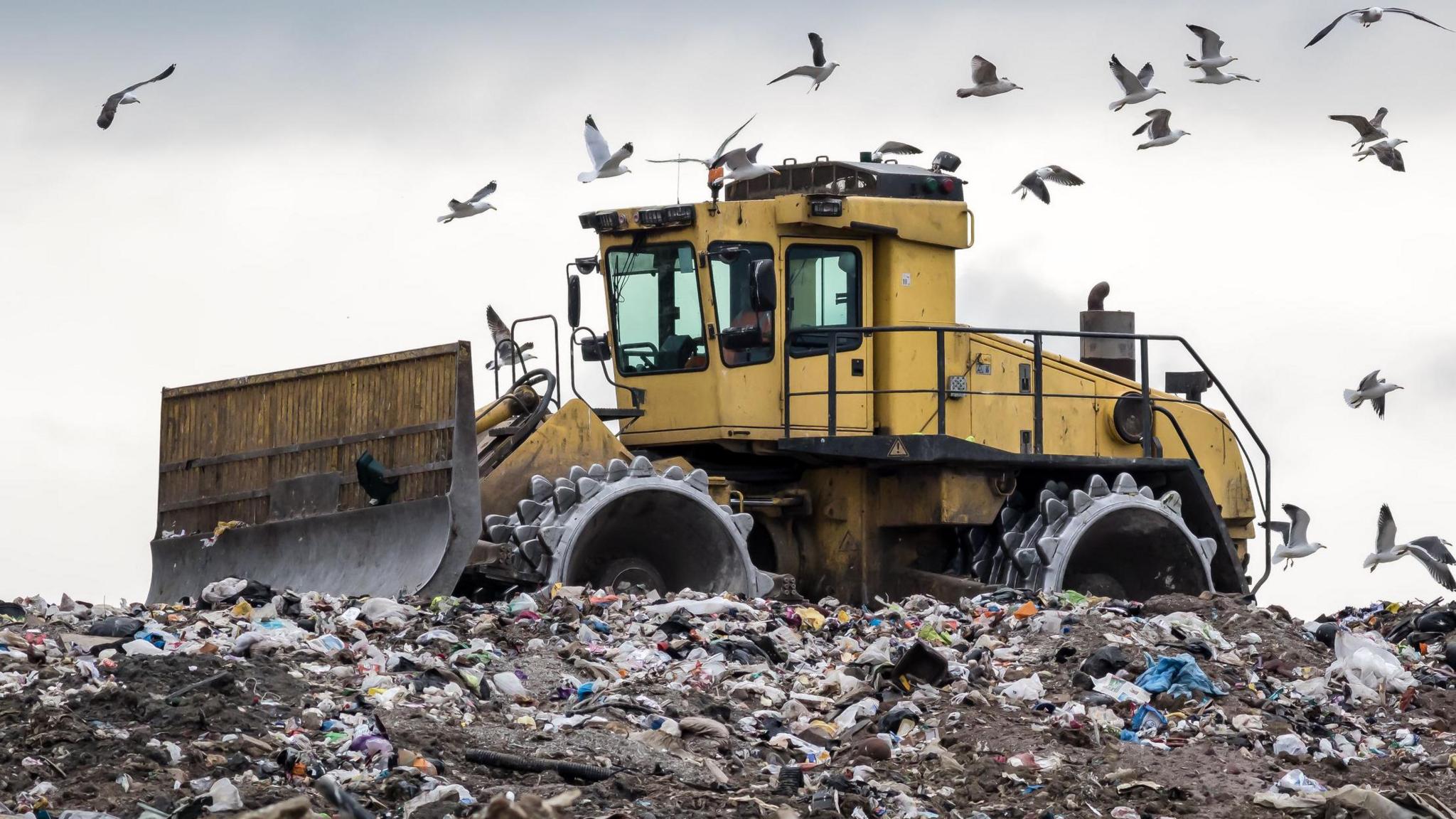Islands council plans to turn rubbish into fuel

Western Isles Council says waste that currently ends up in landfill would be turned into fuel
- Published
A Scottish islands council plans to be the first local authority in the UK to turn non-recyclable rubbish into an alternative fuel.
Comhairle nan Eilean Siar expects to process 10 tonnes of domestic and commercial rubbish daily under a new £1.2m eight-year deal with a Wiltshire-based contractor.
The comhairle said the waste collected from North and South Uist and Barra was currently transported by road and ferry 93 miles (150km) up the island chain to be dumped in a landfill site in Stornoway, Lewis.
Under the plan the rubbish would be turned into solid recovered fuel (SRF), which is used as a replacement for coal and an ingredient in alternative aviation fuel.
The work is expected to start early next year.
The partnership with Trowbridge-headquartered Advetec would see rubbish put through a biological treatment process at a waste transfer site in Benbecula.
According to the comhairle, SRF emits less greenhouse gases than fossil fuels.
The process would also help it comply with a ban on biodegradable rubbish going to landfill which is due to come into force in January 2026.
The fuel is expected to be put to industrial uses.

the leader of the council, Paul Steele, said there would be benefits for islanders and the local environment.
He said: "Our new approach reduces the number of trucks and ferries required to move waste around the isles and will transform it into a commodity.
"Converting this waste into fuel is a much more sustainable solution and allows us to extract greater value from something once deemed worthless."
Advetic chief executive Lee Knott said 40% of UK waste could not be recycled.
He said: "This waste is traditionally sent to landfill or for low-level incineration.
"However, increasing gate fees, waste-related taxes and restrictions mean these routes are no longer sustainable."
![In numbers:. Western Isles waste [ 12,572 Tonnes of household waste was generated in 2023 ],[ 64% Ended up in landfill ] [ 35% Was recycled ], Source: Source: Sepa, Image: A red roofed cottage beside a beach in Barra in the Western Isles.](https://ichef.bbci.co.uk/news/920/idt2/idt2/b10be255-cc4e-4457-8333-a3af99e1e944/image/460)